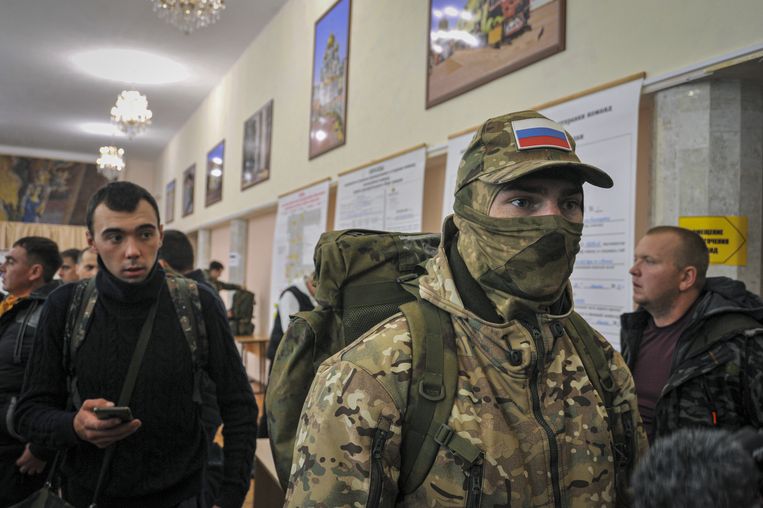EU ambassadors held an emergency meeting to discuss different options as the recalled reservists continued to flee. One option on the table for a coordinated European approach is to grant military refugees who apply for asylum not refugee status, but temporary humanitarian status.
However, this was met with fierce resistance from a host of countries, including the Baltic states and Poland, who were unwilling to receive conscientious objectors and deserters in any way. “The Russians should stay and fight Putin,” Lithuanian Foreign Minister Gabrielius Landsbergis expressed in these member states, who are among the fiercest opponents of Moscow.
In contrast there are countries such as Germany and the Netherlands, with the support of European Union President Charles Michel, who believe that Europe should help the group of Russians. The German government says that Russians who refuse to fight and knock on doors in Germany can be granted refugee status if it is clear that they will be persecuted upon return to Russia. “Those who bravely oppose Putin’s regime and put themselves in danger can apply for asylum in Germany on the basis of political persecution,” the German Interior Ministry said.
NEW: Russians wait at the border with Georgia in long lines of trucks and cars after Putin’s mobilization order, according to a Sept. 25 photo.
More than 115,000 Russians have fled to Georgia since the mobilization order last week. The lines formed more than 16 kilometers from the border
:Tweet embed pic.twitter.com/jqv3sgmH5P
– Jack Detsch September 26, 2022
International agreements
The Netherlands also says that reservists can apply for asylum. Return is also not an option for The Hague, in part due to international treaties regarding refugees. In France, a group of 40 parliamentarians urged not to close Europe’s borders to conscientious objectors and other Russian refugees.
EU President Michel has called for a swift and coordinated approach by the EU, especially now that the partial mobilization has led to an increase in the number of Russian men fleeing the country. Many conscientious objectors to military service fled last week, mainly via Finland. According to Michel, Europe should be open to receiving Russians “who do not want to become an instrument of the Kremlin.”
“We have finished the professional Russian army, now is the time to end the amateur army,” – Valery Zaluzhny, Commander-in-Chief of the Ukrainian Armed Forces pic.twitter.com/MyMLnJcowt
– Anton Gerashchenko (@Gerashchenko_en) 25 September 2022
There is no conscientious objector
The Baltic states and Poland, bordering Russia, believe that a policy of zero tolerance towards conscientious objectors is sound because they fear that the Kremlin will send “spies” with them. “There are significant security risks if they are allowed to do so,” Latvia’s Foreign Minister Edgar Rinkevix wrote on Twitter.
Rinkevics: There are a lot of countries outside the European Union to visit. Many Russians who are now fleeing Russia because of the mobilization were fine with the killing of Ukrainians, and they did not protest at the time. It is not right to consider them conscientious objectors.
Lithuania immediately declared on Friday that Russian conscientious objectors should not count on asylum. Minister Landsbergis advised them not to cross the Lithuanian border. “Giving 25 million conscientious objectors is not an option,” Landsbergis wrote on Twitter, referring to the possible number of soldiers Russia could call up. The Russians must liberate Russia. This is what Russian men could do instead of fleeing to Europe: protest, disobey, leave your military position, imprison, and rebel.







